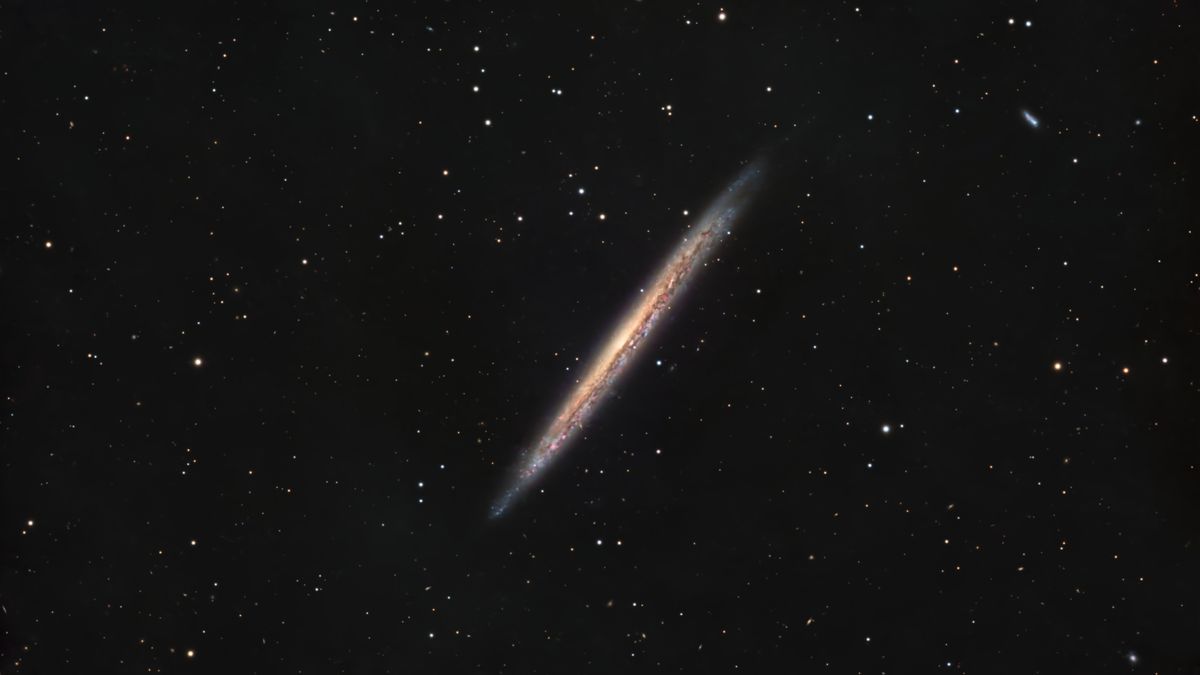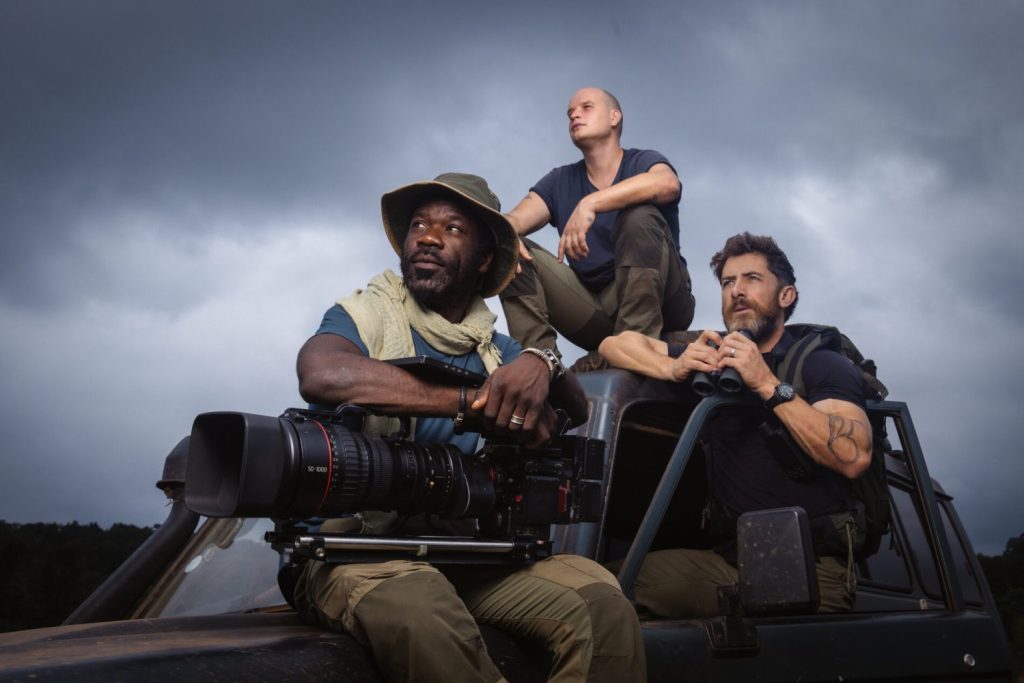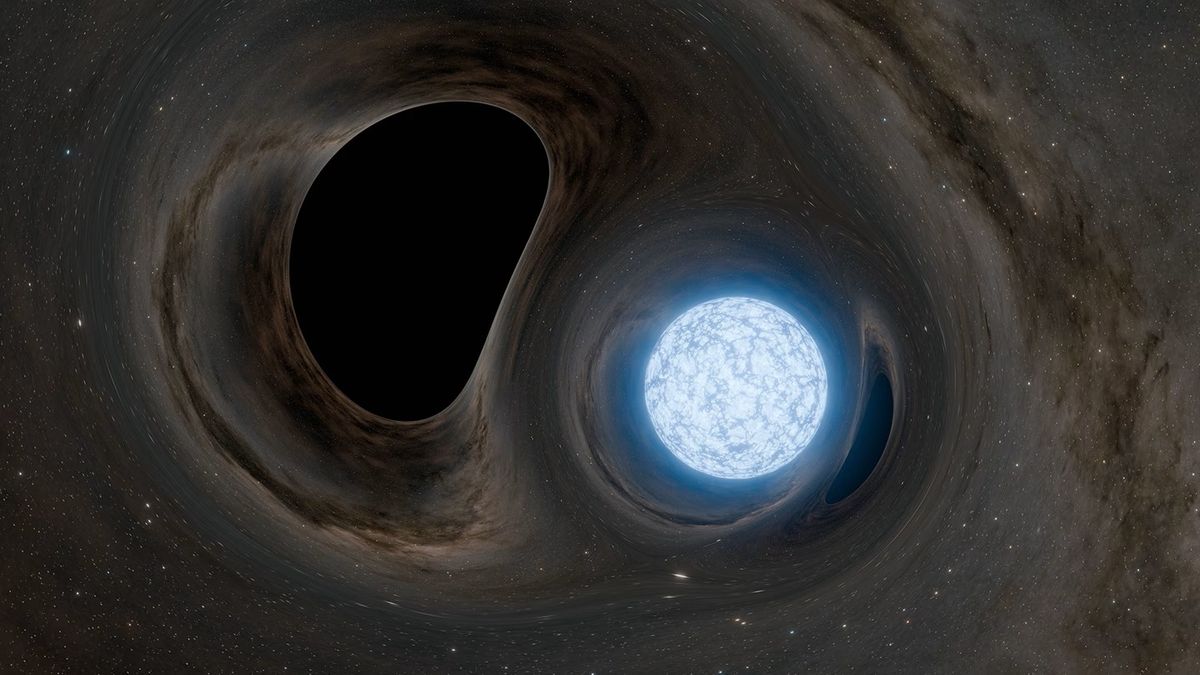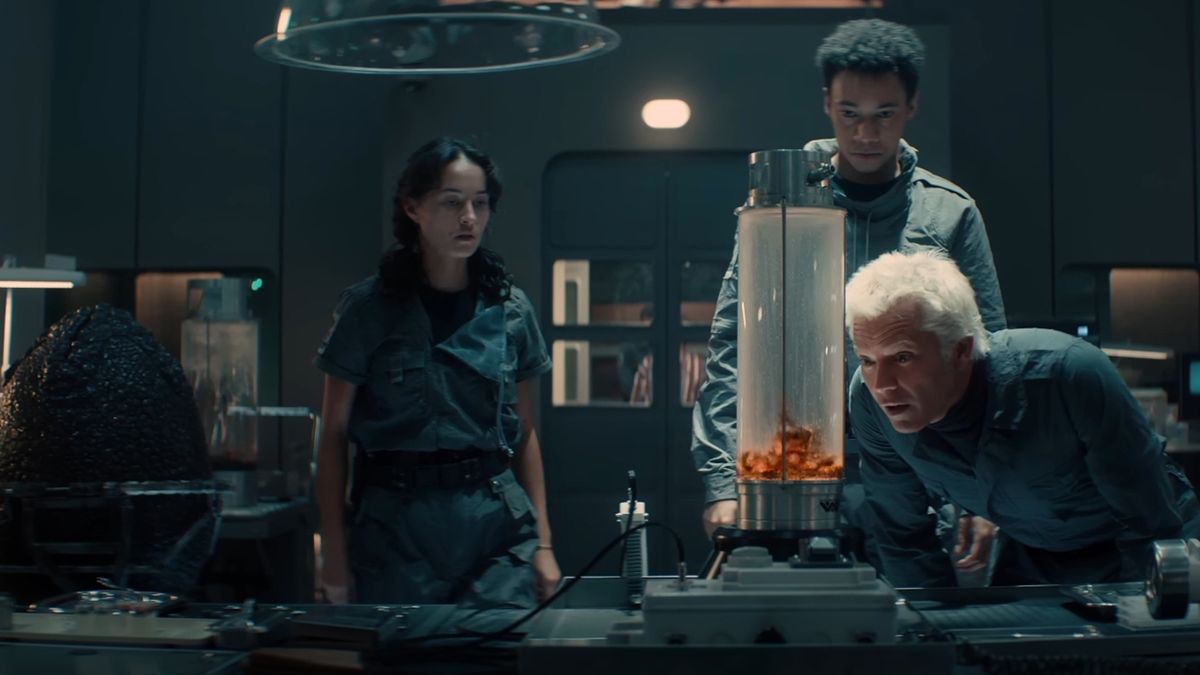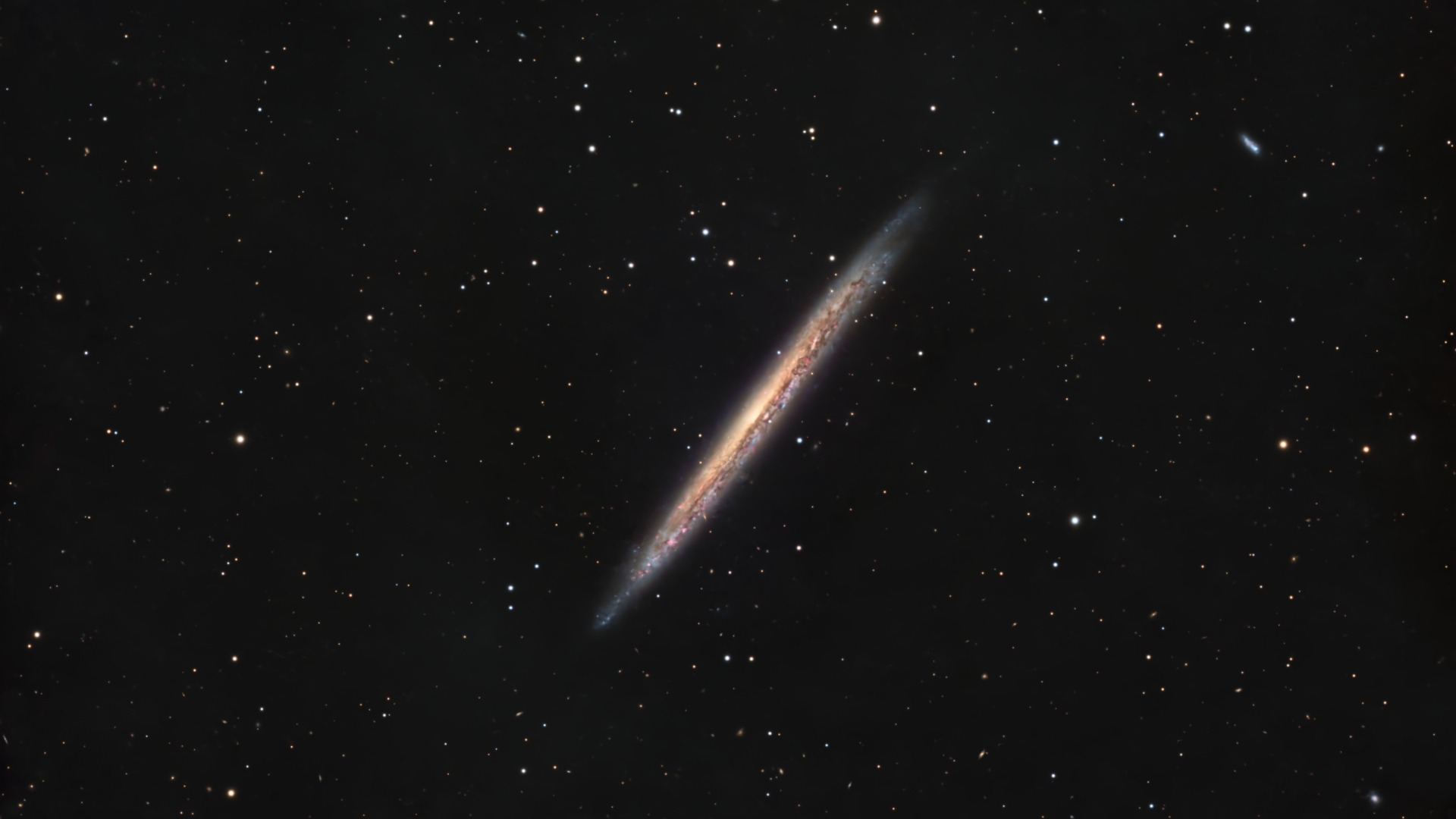
Astrophotographer Ronald Brecher captured a striking image of the Knife Edge Galaxy (NGC 5907) during May under a near-full moon from his backyard observatory near the city of Guelph in Canada.
The Knife Edge Galaxy is located some 50 million light-years from Earth in the constellation Draco, according to NASA. NGC 5907’s spiral form is oriented edge-on to our planet, granting it a sharp, needle-like appearance that has given rise to a number of nicknames, such as the Splinter Galaxy.
Brecher’s image showcases the bright central core of the Splinter Galaxy shining out from behind the choking dust clouds that thread the grand cosmic structure. Hidden among the star-studded spiral arms is the record-breaking energetic pulsar NGC 5907 ULX, which emits as much energy in a single second as our sun releases in three and a half years.
TOP TELESCOPE PICK:
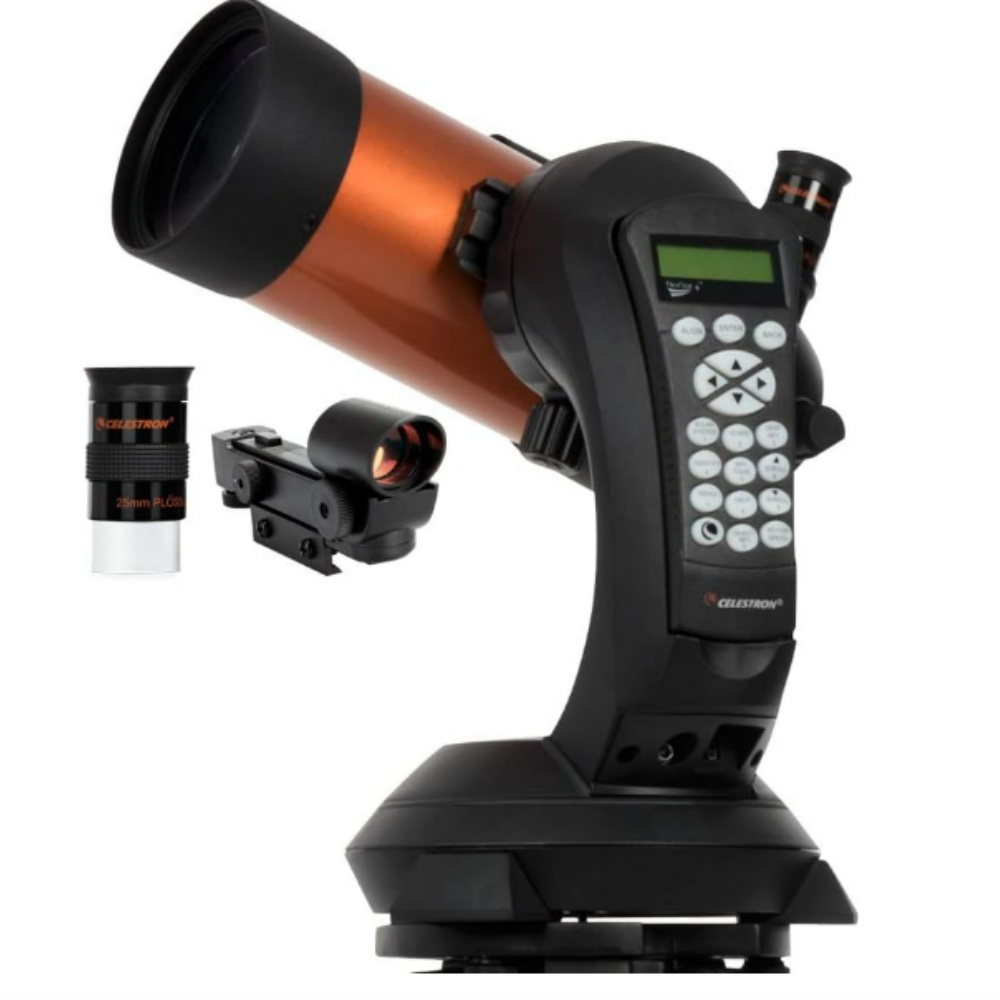
Want to see the wonders of the solar system and beyond for yourself? The Celestron NexStar 4SE is great for beginners wanting quality, reliable and quick views of celestial objects. Check out our Celestron NexStar 4SE review for a more detailed breakdown of its features and capabilities.
The nearby companion galaxy PGC54419 can also be picked out as a smudge of light in the upper right of the image. “The Splinter Galaxy is one of my favorites,” said Brecher in an email to Space.com. “I’ve shot it before, but not with the resolution afforded by the C14.”
It took Brecher a little over 21 hours to image the Knife Edge Galaxy using his Celestron 14″ EDGE HD telescope in conjunction with a high-end astronomy camera between May 9-15 earlier this year. Check out Brecher’s website for a breakdown of the filters and other peripherals used to capture and edit the cosmic splinter portrait.
Stargazers interested in capturing the night sky for themselves should read up on our guides for the best telescope and astrophotography camera deals for 2025.
Editor’s Note: If you would like to share your deep sky astrophotography with Space.com’s readers, then please send your photo(s), name, location and comments to spacephotos@space.com.


